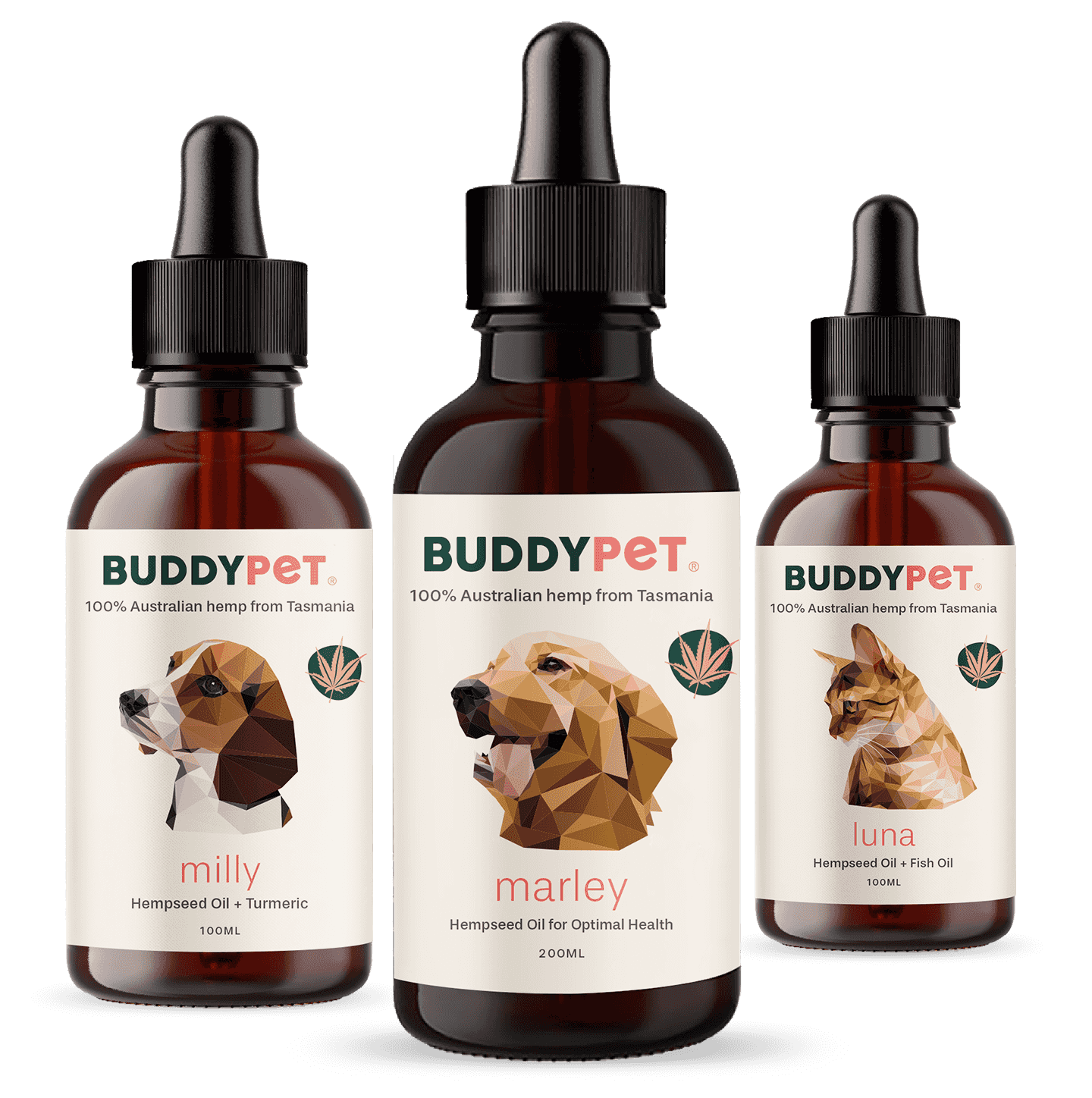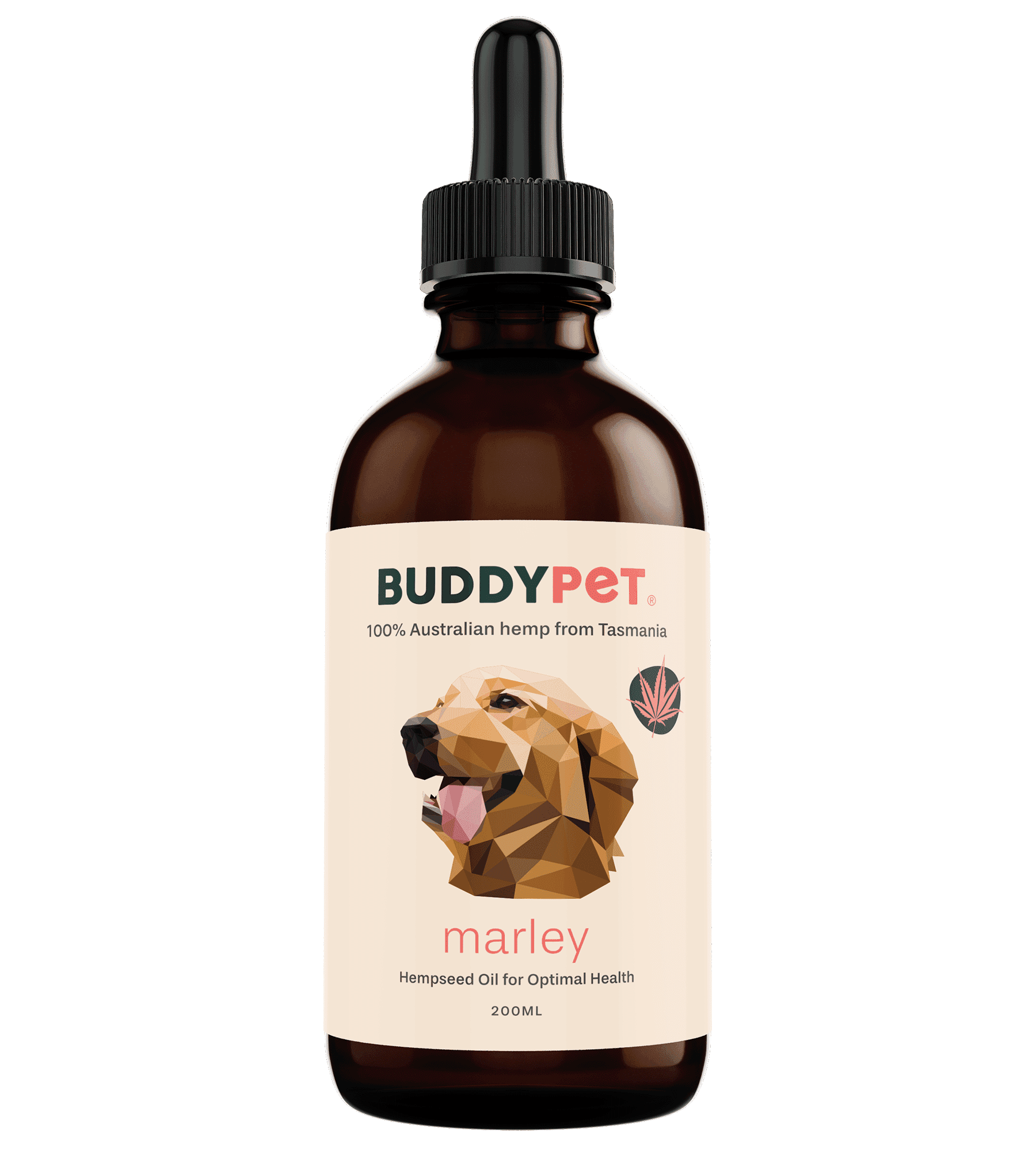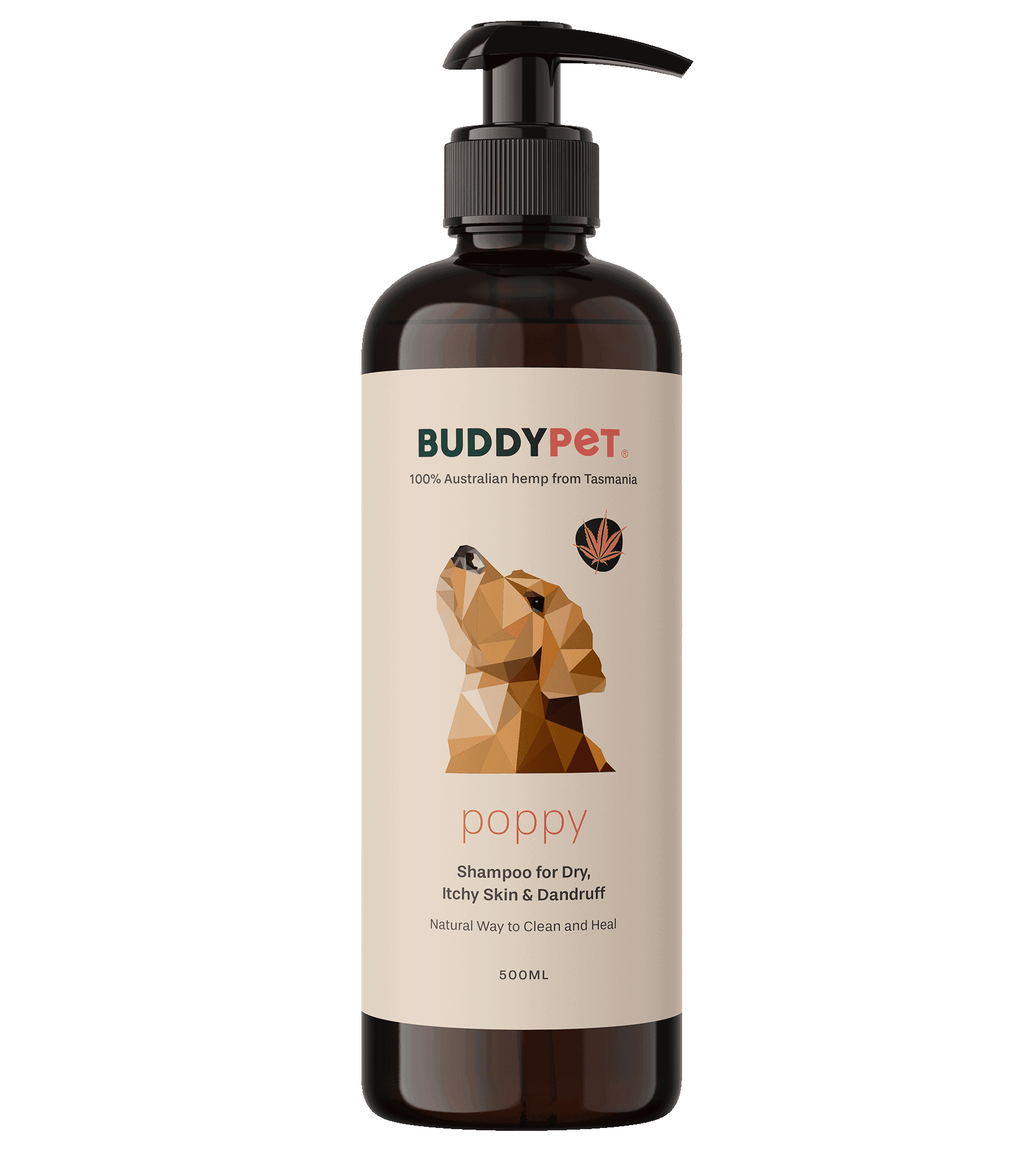If your dog is constantly scratching, licking, or biting at their skin, you may feel helpless as a pet parent. Just like people, dogs can struggle with itchy, irritated and sore skin, making them feel uncomfortable and desperate for relief.
Your dog’s itchy skin can have a variety of causes. Read on for a closer look at why your dog is feeling itchy and how you can treat it, and how to manage the issue in the future.
Potential Causes of Your Dog’s Itchy Skin
To treat your dog’s itchy skin, you must first understand what’s causing the itch. Here are a few of the most common causes of itchy skin in dogs:
1. Fleas: Fleas are the most common cause of itchy skin for dogs, so you should always check their coat if you see them scratching excessively. Flea bites cause an allergic reaction in many dogs, which in turn makes dogs feel itchy in areas where they’ve been bitten.
2. Skin Infections: Yeast and bacterial infections can cause red, itchy, and often greasy spots. Infections often occur secondary to other causes of dermatitis, though they can be primary. These areas can appear anywhere but typically in your dog’s skin folds. All short-nosed and wrinkly breeds with skin folds are predisposed to skin dermatitis. These breeds include Pugs, Bulldogs, Shih-Tzus, Shar Pei, Neapolitan and French Mastiff, Basset Hound and Bloodhounds.
3. Atopic Dermatitis (AD): Atopic Dermatitis is a common genetically based inflammatory and pruritic allergic skin disease, most commonly directed against:- environmental allergens (pollen, dust mites, mould, grass, toxins, etc.),
- food allergens,
- microbial colonisation with Staphylococcus and Malassezia.
Atopic dermatitis can occur in any breed of dog, but there is an increased risk reported in Golden and Labrador retrievers, Pit Bull terriers, German Shepherds, English bulldogs, boxers, pugs, Irish setters, Dalmatians, West Highland white terriers, Scottish terriers, wirehair fox terriers, Welsh terriers, Boston terriers, cairn terriers, Lhasa apsos, Shih Tzus, and miniature schnauzers. Up to 25% of atopic dogs may have a concurrent food hypersensitivity.
Some pet parents report extreme cases of self-trauma when their pups begin to bite into the itchy areas or chew on their paws. This is usually seen in dogs with AD and secondary over-colonization of their skin with Staphylococcus pseudintermedius and Malassezia pachydermatis. Dogs with such conditions will have a defective cutaneous protective lipid (skin) barrier function and the secondary seborrheic skin disease, which unfortunately creates an environment more conducive to bacterial and yeast over colonisation. The staphylococci bacteria will produce endotoxins that promote the production of inflammatory cytokines, further exacerbating the itch. As the compromised or impaired skin barrier breaks, the absorption of allergens will increase, leading to more skin inflammation and extreme itching.
For a closer look at atopic dermatitis and allergies, please read Atopic Dermatitis in Dogs: Causes and Treatment and Dog Allergies: Common Types and What to Do About Them.
5 Ways to Treat Itchy Skin in Your Dog
1. Find the Root Cause
The most important thing you can do is determine the underlying cause. Make an appointment with your vet so that they can perform the necessary diagnostic tests. Once you know the cause, you can choose the right treatment plan.
2. Hemp seed oil
Hemp seed oil is well known, particularly for its ability to manage the symptoms of atopic dermatitis. Rich in vitamin E (antioxidant) and anti-inflammatory fatty acids like Omega-3 and gamma-linolenic acid (GLA), hemp seed oil helps to reduce skin inflammation, modulate a healthy immune response to allergens and invaders, and boost your dog’s first line of defence, the skin barrier. Hemp seed oil can also be applied topically to the affected areas, providing soothing relief to itchy skin. If your dog was diagnosed with atopic dermatitis, we recommend that you try BUDDYPET Marley dietary supplement.
3. Topical, Over-the-Counter Shampoos
While these products are not a cure, they can help manage the symptoms and provide short term relief to itchy skin. Look for natural only products, free from pro-inflammatory parabens and sulphates. At BUDDYPET, we offer 100% natural grooming products for pets with inflammatory skin conditions: Maisie and George for sensitive skin and Poppy for itchy skin and dandruff. Check out our collection of grooming and skincare products here.
4. Natural Baths
Oatmeal has natural antioxidant and anti-inflammatory properties, helping to soothe your dog’s itchy skin. You can create an oatmeal bath with simple ingredients at home. All you need is plain, unflavoured oatmeal, something to grind the oatmeal, and warm water. You could also add hemp seed oil or olive oil to the bath to help nourish and hydrate skin and coat.
Oatmeal can promote yeast growth, so do not give your dog an oatmeal bath and avoid oatmeal-based shampoos if your vet has diagnosed a yeast infection.
Other great additions to your dog’s itchy skin are baths with chamomile, calendula, and green tea.
5. Keep Your Pup Hydrated
Hydration is key to keeping the skin hydrated. Give your dog access to plenty of fresh, clean drinking water. As a rule of thumb, your dog should drink about 1 ounce of water for every pound they weigh. For example, a 10-pound dog should drink about 10 ounces of water every day.
If your dog needs more encouragement to stay hydrated, you can mix water, wet food, or broth into their usual meals.
If the above things are not helping, then your dog will need to see a Vet as they may need medications or other prescribed treatments to help them get over the itch and allow the skin to recover.
How to Prevent Itchy Skin in Your Dog
1. Upgrade Your Dog’s Nutrition
Nutrition plays a crucial role in their overall skin health. Many inflammatory skin conditions are a result of some underlying gut inflammation issue. What’s on the inside is on the outside. Because food allergies are pro-inflammatory, they can be the culprit of your dog’s itch, so always work with your vet to determine the underlying cause of their inflammation. Once you figure out what your dog is allergic to, you can create a healthy diet full of quality ingredients that are easy on your dog’s digestive system. If gut inflammation is a cause, we recommend adding BUDDYPET Cooper (hemp protein) as a dietary supplement to help restore gut health.
Incorporating natural antioxidants and anti-inflammatory foods or supplements can be very helpful in supporting skin and coat health.
2. Create a Regular Grooming Schedule
You want to keep your dog’s coat clean, but too many baths, especially with products containing harsh chemicals (parabens, alcohol, sulphates), can dry out the skin, impair the skin barrier and cause an allergic reaction. If you take your dog to a grooming salon for a wash, ask them about their products. If they use natural products, ask for a list of ingredients and a COA (certificate of analysis) to verify the claim.
The recommended routine for dogs with aggressive AD and bacterial infection is bathing once a week. You might have to use a medicated shampoo in case of bacteria over colonisation. Ask your vet to help you choose the right shampoo product for your dog as you can do more harm than good by using the wrong product. Once the infection has been treated, you should be able to reduce bathing to every two weeks.
Brush your dog regularly to help remove access dirt from their fur and use that time as an opportunity to check the skin. Catching signs of skin infection early makes treatment easier.
3. Flea Prevention
Monthly flea prevention medication is a must to prevent flea infestation and flea-related skin inflammation. Talk to your vet to find the best medication and flea prevention routine for your dog.
Help Your Dog’s Itchy Skin Today
If your dog has a persistent itch that’s not going away, schedule a vet appointment as soon as possible. A good understanding of the underlying cause will help develop a tailored treatment plan with the proper diet, dietary supplements and skincare products to keep their skin clean, hydrated, nourished and protected, and prescribed treatments as needed.
Photo by Sincerely Media on Unsplash




